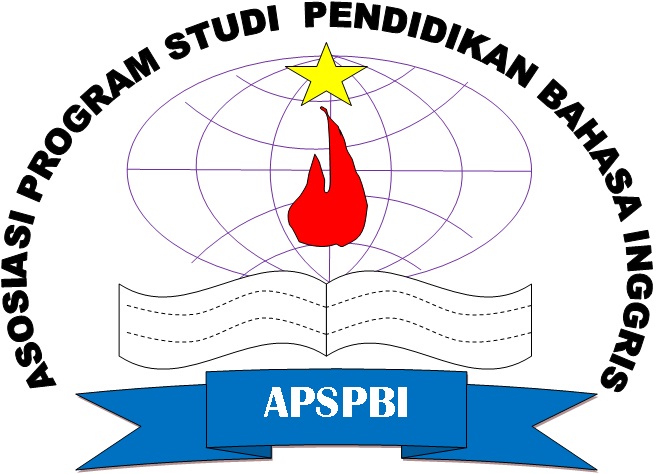An analysis of apology in an Indonesian ELT textbook and the teacher’s strategy to teach the apology
DOI:
https://doi.org/10.28918/erudita.v1i1.4265Keywords:
Apology;, ELT textbooks, Pragmatic competence, Communicative competence, Speech actsAbstract
The apology is one of the speech acts that language functions cover. Considering that students must have pragmatic competence to use language appropriately in context, this research looked at apologies in an Indonesian senior high school ELT textbook, as well as the strategies used by teachers to teach apology. This study employed a qualitative approach which involves a textbook analysis and a semi-structured interview of the teacher’s teaching strategies to collect the data. The collected data then were classified, transferred into tables, and analyzed using Limberg (2015)’s principles of teaching pragmatics. The findings of this study show that the textbook entitled Bahasa Inggris Kelas XII covers some parts of Limberg’s principles of teaching pragmatics of apology. There is one principle that is not covered, namely, the principle of drawing a comparison. However, the findings of this study expose that the teacher’s teaching strategies cover all Limberg’s principles of teaching pragmatics of apology. Therefore, English teachers and institutions are expected to take into account the materials used to teach apology to students to raise students’ pragmatic competence.
References
Alfghe, A., & Mohammadzadeh, B. (2021). Realisation of the speech act of request, suggestion and apology by Libyan EFL learners. SAGE Open, 11(4), 1-13. https://doi.org/10.1177%2F21582440211050378
Arghashi, T., & Gorjian, B. (2018). The impact of teaching pragmatic functions to high school learners. Journal of Applied Linguistics and Language Learning, 4(3), 49-58. https://doi.org/10.5923/j.jalll.20180403.01
Celce-Murcia, M., & Olsthain, E. (2000). Discourse and context in language teaching. Cambridge University Press.
Derakhshan, A., & Arabmofrad, A. (2018). The impact of instruction on the pragmatic comprehension of speech acts of apology, request, and refusal among Iranian intermediate EFL learners. English Teaching & Learning, 42(1), 75-94. https://doi.org/10.1007/s42321-018-0004-6
Dörnyei, Z. (2007). Research methods in applied linguistics. Oxford University Press.
Emilia, E. (2005). A critical genre-based approach to teaching academic writing in a tertiary EFL context in Indonesia [Doctoral dissertation, University of Melbourne]. Minerva Access. http://hdl.handle.net/11343/39548
Griffiths, P. (2006). Introduction to English semantics and pragmatics. Edinburgh University Press.
Harmer, J. (2015). The practice of English language teaching. Pearson Education.
Ishihara, N., & Cohen, A. D. (2014). Teaching and learning pragmatics: Where language and culture meet. Routledge.
Khoirunnisa, D. (2015). A pragmatic analysis of request in English textbooks for Indonesian students [Bachelor’s thesis, Universitas Negeri Yogyakarta]. Lumbung Pustaka Universitas Negeri Yogyakarta. http://eprints.uny.ac.id/id/eprint/27878
Li, J. (2018). An evaluation of pragmatic elements in university EFL textbooks in China [Master’s thesis, University of Liverpool]. British Council. https://www.teachingenglish.org.uk/sites/teacheng/files/jiaying_li_university_of_liverpool_dissertation.pdf
Limberg, H. (2015). Principles for pragmatics teaching: Apologies in the EFL classroom. ELT Journal, 69(3), 275–285. https://doi.org/10.1093/elt/ccv012
Limberg, H. (2016). Teaching how to apologize: EFL textbooks and pragmatic input. Language Teaching Research, 20(6), 700–718. https://doi.org/10.1177/1362168815590695
Nguyen, T. (2011). Learning to communicate in a globalized world: To what extent do school textbooks facilitate the development of intercultural pragmatic competence? RELC Journal, 42(1), 17-30. https://doi.org/10.1177/0033688210390265
Nuridin, W. (2019). Developing pragmatic competence of Indonesian EFL learners through teaching speech acts of oral and written complaints. Englisia: Journal of Language, Education, and Humanities, 6(1), 27-34.http://dx.doi.org/10.22373/ej.v6i1.3167
Ogiermann, E. (2009). On apologizing in negative and positive politeness culture. John Benjamins.
Richards, K. (2009). Interviews. In J. Heigham & R. A. Croker (Eds.), Qualitative research in applied linguistics: A practical introduction (pp. 182-199). Palgrave Macmillan.
Rose, K., & Kasper, G. (Eds.). (2001). Pragmatics in language teaching: Cambridge applied linguistics. Cambridge University Press. https://doi.org/10.1017/CBO9781139524797
Saleem, T., Anjum, U., & Tahir, S. (2021). The sociopragmatic and pragmalinguistic strategies in L2 pragmatic competence: A case of Pakistani ESL learners. Journal of Intercultural Communication Research, 50(2), 185-206. https://doi.org/10.1080/17475759.2021.1877176
Vakilifard, A., Ebadi, S., & Ebrahimi-Marjal, B. (2015). A critical analysis of speech acts of teaching Persian to speakers of other languages. English for Specific Purposes World, 47, 1682-3257. https://www.researchgate.net/publication/3115876
Waliyadin & Petraki, E. (2020). Teaching compliments and compliment responses: An evaluation of Indonesian English language teaching (ELT) textbooks. The Asian EFL Journal Quarterly, 24(4), 51-77. https://www.asian-efl-journal.com/main-editions-new/2020-main-journals/volume-24-issue-4-july-2020/
Downloads
Published
How to Cite
Issue
Section
License
Copyright (c) 2021 Waliyadin, Nurul Hayati Fauzi

This work is licensed under a Creative Commons Attribution-ShareAlike 4.0 International License.















